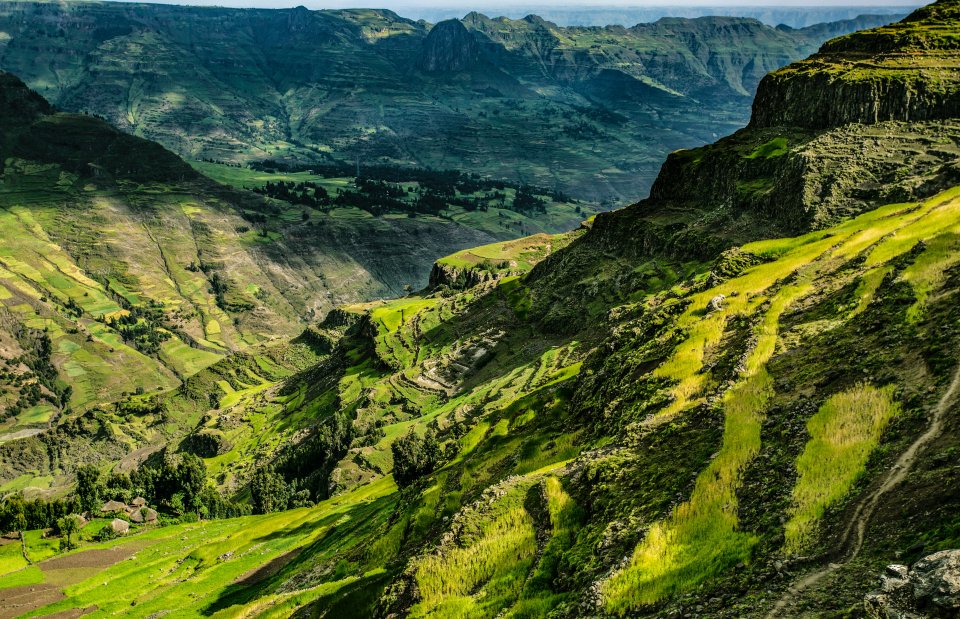
The area is characterised by high and unregulated use of grassland and forest resources, and land conversion that have resulted in an increasement of carbon emissions, droughts, unpredictable rainfall, and soil and water erosion.
The overall objectives are to enhance drought resilience and food and nutrition security of vulnerable populations of the Bale Eco-region, by protect biodiversity, ecosystem services and increasing resilience and well-being of highland/lowland communities.
The SHARE project is divided in two phases. In the first one (2014-2018) have been implemented the following nature-based activities:
- Diversified crops
- Agroforestry
- Climate-smart agricultural techniques (including diversified farming, row planting, mulching, terracing and improved seeds)
- Training local communities to better produce non-timber forests products
- Better management of grazing lands and livestock health
- Development of ten nature-based platforms for both humans and livestock
- Livelistock interventions (including development of forage and improved water access)
In the second phase (2019-ongoing) the successful activites are being scaled up to the entire region (about 9 million ha) to benefit about 12 million people.
The SHARE project in the first phase has:
- Improved resilience and adaptation for 878.000 households through more crop varieties and an improved water access
- Supported mitigation thanks to the reduction of deforestation rate by 62% and the reduction of household fuel wood consumption per week by almost 50%
- Reduced pressure on the forests and supported the ecosystem services regeneration by bringing 500,000 ha of forest under participatory forest management schemes
- Involved 10 villages and 14 participatory rangeland management cooperatives in participatory land-use plans for a total of 350,000 ha
- Incremented the density of tress from 64,115 trees/ha to 76.939 trees/ha
- Increased net household income from ETB 6,867 ($174) at baseline to ETB 18,961 ($482) at endline
- Increased the dietary diversity scores and food secutiry of 33%
- Improved access to safe water from 26% to 38% of targeted households
- Developing climate change adaptation; improving risk management and resilience
- Developing climate change mitigation
- More energy efficient buildings
- Restoring ecosystems and their functions
- Increase achievements of biodiversity targets
- Increase Biodiversity
- Improve water quality
- Increase well-being
- Provision of health benefits
Funding from the European Union's Supporting Horn of Africa Resilience (SHARE) initiative, Royal Norwegian Embassy.
Further information
- 1. No Poverty
- 2. Zero Hunger
- 3. Good Health and Well-being
- 8. Decent Work and Economic Growth
- 11. Sustainable Cities and Communities
- 12. Responsible Consumption and Production
- 13. Climate Action
- 15. Life On Land
- 17. Partnerships for the Goals
